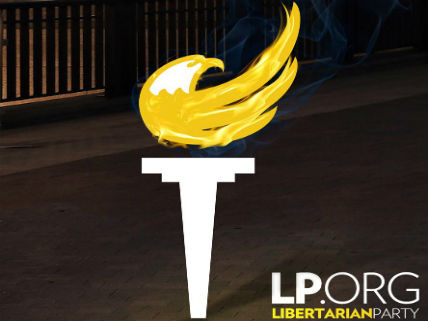A Look at Some Key Lower-Ticket Libertarian Race Results
Texas Looks Like L.P. Ballot Access Was Won In Railroad Commission Race
Let's look at the results in some of the non-presidential Libertarian Party races I've discussed here recently, in a three-candidate profile feature on Colorado federal Senate candidate Lily Tang Williams, Massachusetts 1st District House of Representative candidate Thomas Simmons, and Texas Railroad Commission candidate Mark Miller, and a mini-profile of Florida federal Senate candidate Paul Stanton.

• Williams came in with a reported 3 percent in her Colorado Senate race, won by incumbent Democrat Michael Bennet with 50 percent. She pulled 6.4 percent in a 2014 Colorado state House race.
• Simmons came in with a reported 9.8 percent in his Massachusetts House race, losing to 27-year Democratic incumbent Richard Neal who pulled 68.6. There was no Republican in the race, but an independent candidate, Frederick Mayock, pulled in 21.6 percent (while spending nothing toward that goal, according to an Associated Press report).
• Miller for Texas Railroad Commission looks like he pulled the 5 percent needed (5.2 as of posting according to Dallas Morning News) to give the L.P. in Texas petition-free ballot access for 2018. It is a sad commentary on democracy that this lifelong professional petroleum engineer and teacher of petroleum engineering, running for the regulatory board that oversees the oil and gas industries, which he's written a book about, with endorsements from major papers covering much of the state's population, lost to a Republican, Wayne Christian (52.9 percent), who won Texas Monthly's coveted "Worst legislator" award and a Democrat, Grady Yarbrough (38.8 percent) who barely bothered running, and of course knew nothing at all about the industry.
• Stanton pulled a reported 2 percent in Florida's Senate race, won by incumbent Republican Marco Rubio. In a press release tonight his campaign pointed out:
Paul Stanton's 195,000 vote-tally tonight is the second highest popular vote total ever by a Florida Libertarian candidate. Also, Libertarian Presidential candidate Gary Johnson also set a record for popular vote in Florida with 200,000+ votes. Gubernatorial candidate Adrian Wyllie pulled in 223,000 votes in the midterm 2014 election.
Only seven Libertarian candidates for U.S. Senate nationwide have ever topped 200,000 votes. Massachusetts candidate Michael Cloud tops the list with 369,807 in 2002 (18.4%), with Carla Howell topping 300,000 also in 2000 (11.9%) in Massachusetts.
In another example of an impressively high L.P. result, Lucy Brenton running for federal Senate in Indiana pulled a reported 5 percent. This sort of result is not unheard of in Indiana, a relatively strong state for the L.P. In 2012, for example, Libertarian Andrew Horning pulled 6 percent, and was of course accused of "spoiling" the race for losing Republican Richard Mourdock. (Brenton did not beat the 10 percent spread between winning Republican Todd Young and losing Democrat Evan Bayh.
Sean Haugh, Libertarian running for federal Senate in North Carolina, got 4 percent, again less than the spread between winning Republican Richard Burr and second-place Democrat Deborah Ross, which was 6 percent.
Allen Buckley, Libertarian running for federal Senate in Georgia, also got 4, also less than the spread between winning Republican Johnny Isakson and second-place Democrat Jim Barksdale, which was 14 percent.
There may be other results worth special note on the state or local level when all the votes are counted and results analyzed on the L.P. level, but there's a start.


Show Comments (18)